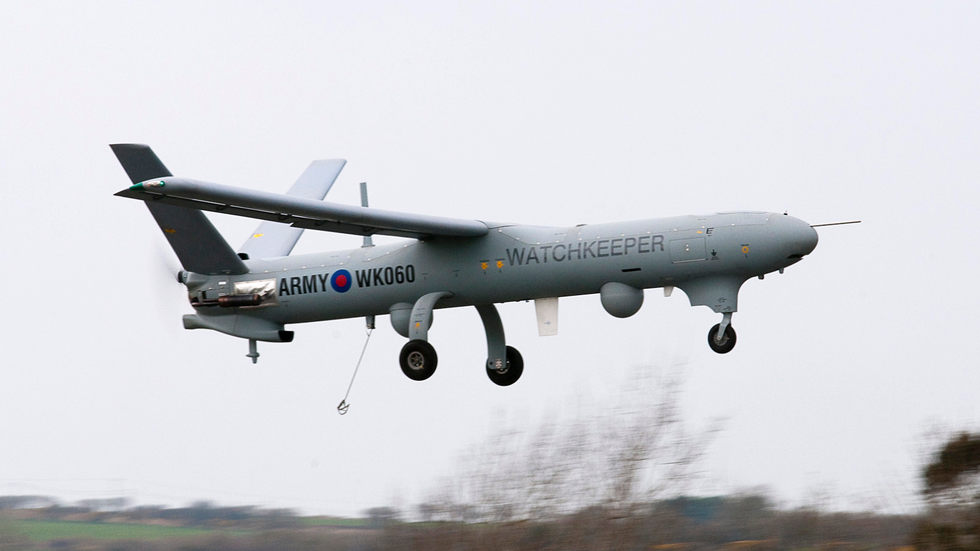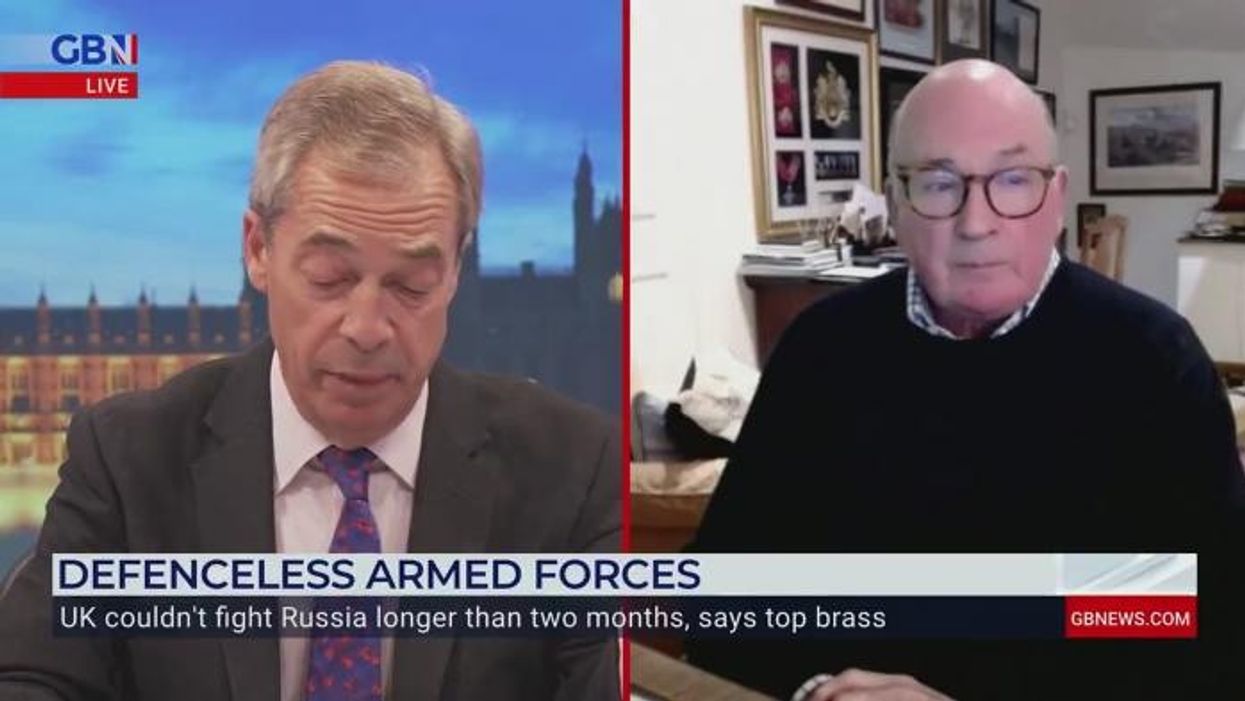The UK system has suffered years of set-backs - while the Israeli drones on which it was modelled are ploughing ahead
Don't Miss
Most Read
Trending on GB News
The UK's fleet of spy drones has been panned as an "unmitigated disaster" after a report found the multi-billion-pound system was incapable of operating in certain weather conditions.
The Watchkeeper drones - which cost £5million each - were criticised in a damning Commons defence committee inquiry into procurement which detailed a litany of technical issues plaguing the craft.
The spy drones - Watchkeeper WK450s - are based on Israel's Hermes 450 craft, but the UK's request for almost 2,000 modifications to their designs left some too heavy to fly, with eight already scrapped at a cost of £40million to British taxpayers.
The Ministry of Defence's contractor for the project, Thales, had sent experts to Israel to keep tabs on their Hermes 450s, which have been crucial both in the country's counter-terrorism operations and assaults on Gaza and Lebanon, according to experts.

Eight of the Watchkeeper drones have already been scrapped at a cost of £40 million to British taxpayers
Peter Russell LBIPP/MoD
Former British Army major Chris Lincoln-Jones said the model, with its flight capability of up to 17 hours in the air at 18,000 feet, and ability to carry out precision strikes with a range of weaponry, was "the best drone in the world".
His reports were instrumental in the MoD's decision to splurge £1.4billion on the drones - with 54 bought for the army alone.
But despite the ringing endorsement of the Hermes 450s, the UK has suffered a slew of setbacks to its own programme; the aforementioned modification requests left Britain's fleet overweight, restricted to operating in certain weather conditions, and susceptible to crashes.
A Telegraph investigation last year contained a quote from an army source which said the Watchkeepers were fir for "visual meteorological conditions only".
UK ARMED FORCES - READ MORE:
- ‘Pay the premium!’ Ex-Chief of the General Staff says defence spending should be ‘at least’ 3% of GDP
- Defence of the realm? We're too busy cosying up to the EU's defence unification plans, blasts Frederick Chedham
- Britain's army could be 'unable to fight abroad,' warns UK's top general as he outlines major risk

Mark Francois said the drone's development had been an "unmitigated disaster arriving years late and effectively already obsolescent"
PA
The drones - slated to enter service in 2010, but delayed until 2018 - were "bedevilled" by 265 'user requirements' and 1,910 additional system requirements, the defence committee inquiry found.
Mark Francois, Conservative MP, former armed forces minister and member of the committee, said the Watchkeeper fiasco represented everything wrong with MoD procurement.
Francois added the drone's development had been an "unmitigated disaster arriving years late and effectively already obsolescent".
Last year, he said: "In theory, Watchkeeper is a highly capable system and an important asset for the future British Army.
"However, it was so over-specified in development that it is years late coming into service and also has an unfortunate tendency to crash; which from a military viewpoint is distinctly suboptimal."
But despite shortfalls in the UK, Lincoln-Jones said Israel's Hermes 450s had benefitted from a range of updates and were currently in operation in Gaza - though he criticised the death toll in the war-ravaged region, claiming Israel's use of the high-precision equipment should have decreased civilian casualties.
Though a Ministry of Defence spokesperson talked up the UK's system, saying: "Watchkeeper is a highly sophisticated drone which has accumulated more than 4,000 hours of flying, providing vital information for soldiers on the ground.
"It has been successfully deployed across the world, including Afghanistan, where it played a crucial protective role for British troops."









